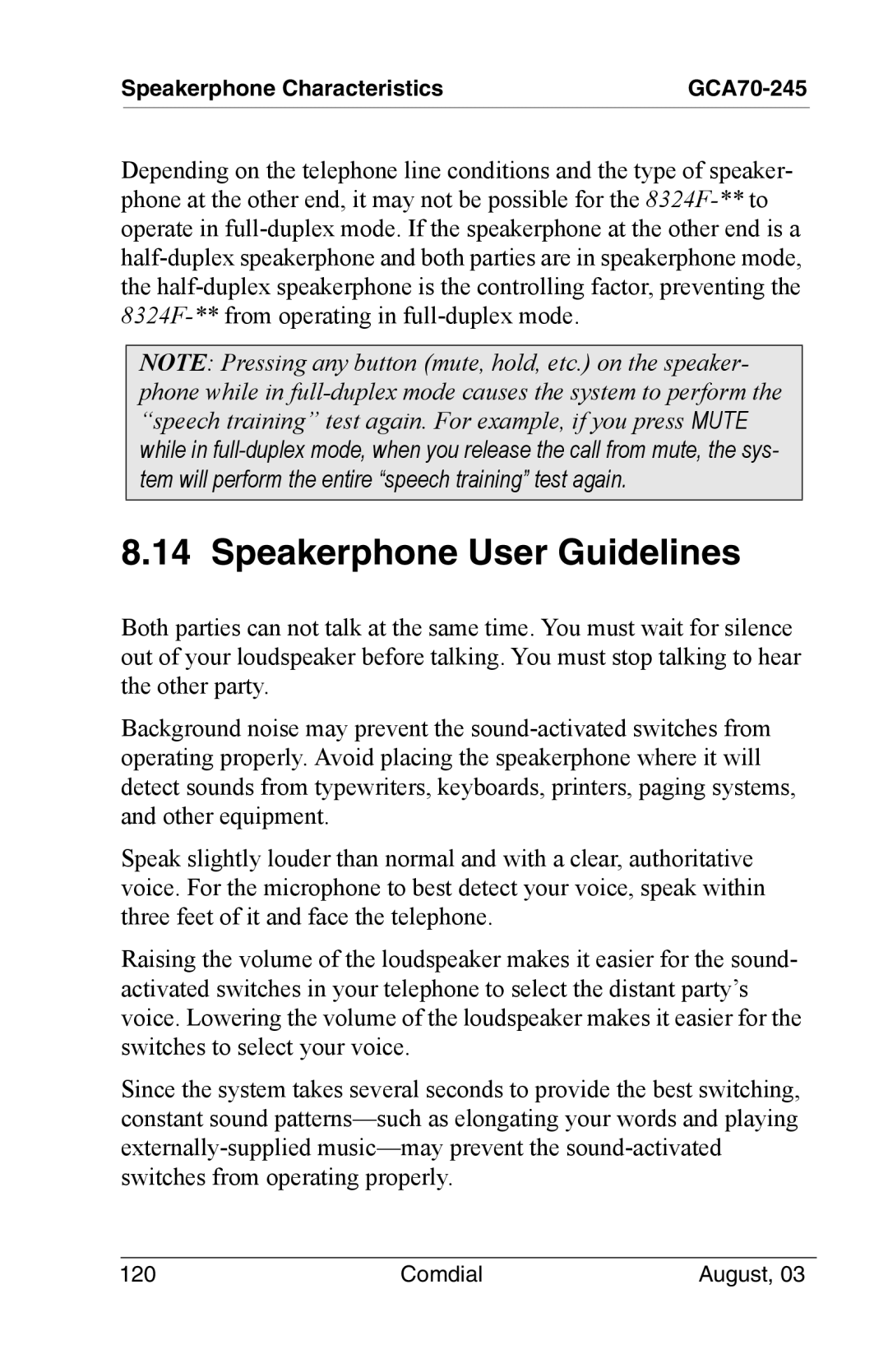
Speakerphone Characteristics |
Depending on the telephone line conditions and the type of speaker- phone at the other end, it may not be possible for the
NOTE: Pressing any button (mute, hold, etc.) on the speaker- phone while in
8.14 Speakerphone User Guidelines
Both parties can not talk at the same time. You must wait for silence out of your loudspeaker before talking. You must stop talking to hear the other party.
Background noise may prevent the
Speak slightly louder than normal and with a clear, authoritative voice. For the microphone to best detect your voice, speak within three feet of it and face the telephone.
Raising the volume of the loudspeaker makes it easier for the sound- activated switches in your telephone to select the distant party’s voice. Lowering the volume of the loudspeaker makes it easier for the switches to select your voice.
Since the system takes several seconds to provide the best switching, constant sound
120 | Comdial | August, 03 |
